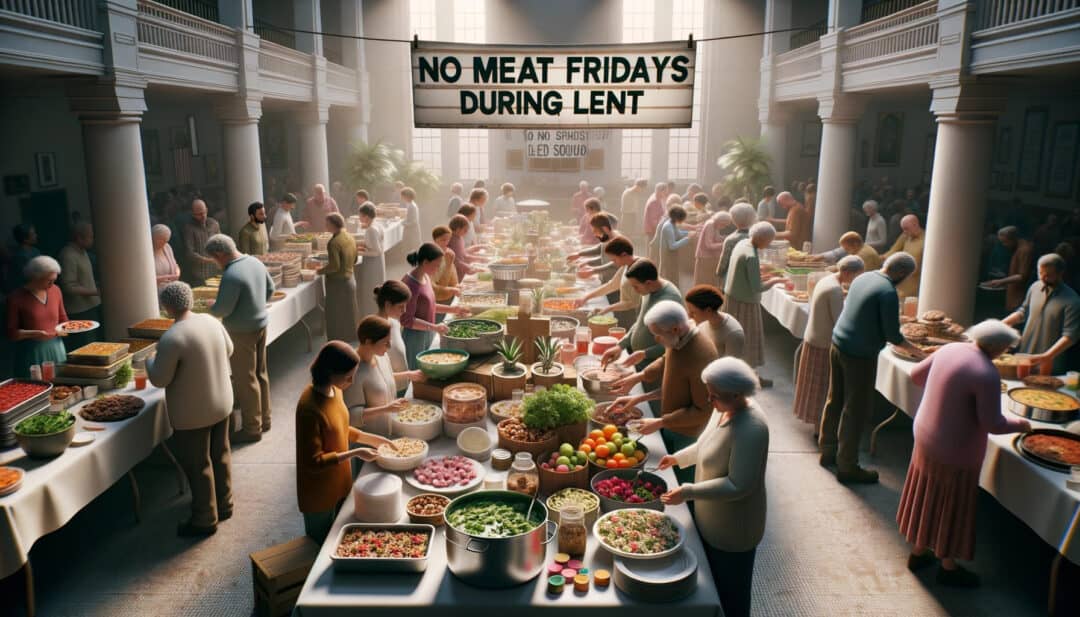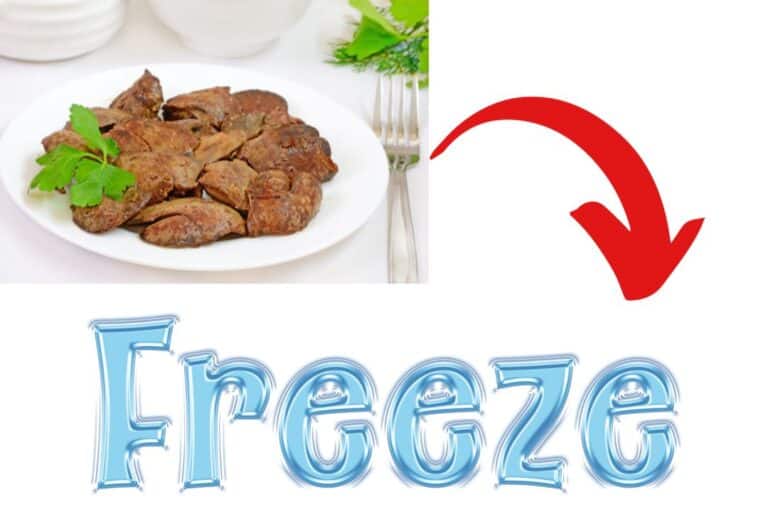If You Are Over 60 Can You Eat Meat on Fridays During Lent
The Lenten season is a period of deep reflection, a time of year when Catholic Christians remember the prayerful remembrance of the passion of Jesus Christ leading up to His death and then the joyous celebration of Easter. The question arises: if you are over 60 can you eat meat on Fridays during Lent?
Ash Wednesday begins this sacred season, ending with the Easter Vigil on Holy Saturday night. During this time, the U.S. Conference of Catholic Bishops and other Christian denominations offered guidelines for acts of penance and fasting.
One common practice among Roman Catholics worldwide is abstaining from meat on the Fridays of Lent. The origin of this tradition can be traced back to the early church, drawing inspiration from the New Testament.

The death of Jesus on a Friday prompted believers to mark this day of self-denial by refraining from eating flesh meat. This practice is well documented in the Code of Canon Law, which Roman Catholics adhere to.
However, what do meatless meals comprise? While red meat from mammals is prohibited, freshwater fish species fall under a different animal category and are thus permissible. Over the years, moral theologians have debated the nuances.
For instance, is the taste of meat, like meat juices or gravies, considered breaking the fast? And what about vegetarian burgers that taste meat, like the Impossible Whoppers now offered by fast-food chains?
The Catechism of the Catholic Church and the pastoral statement from the U.S. bishops provide some clarity. They suggest that foods like chicken broth, animal-derived products like gelatin, or even meat gravies do not violate the Friday abstinence.
The true meaning of penance is not about nitpicking dietary details but understanding the deeper spiritual significance, recalling the pain of sin that led to the death of Jesus.
Now, the question of age arises. The law of fasting, as per the Code of Canon Law, stipulates that days of fasting apply to those from their late teens until 59 years of age. Pregnant women and those with certain medical conditions are exempt.
But there is no explicit upper age limit set for the days of abstinence, which includes the Lenten Friday meat prohibition.
However, Pope Paul VI declared that individual bishops could decide for their regions to promote the spirit of penance rather than stringent adherence.
Consequently, the U.S. Conference of Catholic Bishops issued a pastoral statement, saying that those over 59 years of age can substitute another form of penance or charity due to their age or other circumstances. But it’s up to the pastors of souls and the individual’s common sense to decide.
Last year, during St. Patrick’s Day, which occasionally falls within Lent, many bishops, acknowledging the cultural significance of the Feast of St. Patrick, gave a dispensation allowing meat consumption on that particular Lenten Friday. It was not a universal change but a recognition that sometimes, pastoral needs outweigh traditions.
In the age of Pope Francis, with a renewed emphasis on climate change, many Catholics also opt for plant-based foods for the entire Lenten season. This aligns with Orthodox Christians and other Christian denominations with stricter Lenten fasting regulations.
But what if you find yourself at a fast food chain during a Lenten Friday? Realizing the demand, many fast-food chains have expanded their Friday menu during Lent. Beyond fish, there’s a surge in plant-based offerings like the Impossible Whoppers or other vegetarian burgers.
In the early church, days of penance, including fasting and abstinence, covered the entire year, not just the Lenten season. And while the days and specifics, like age limits, have changed, the essence remains – it’s a time of fasting, self-denial, and a prayerful remembrance of the Passion of Jesus Christ.
One common question is whether individuals over 60 can eat meat on Fridays during Lent. This concerns many people, especially those who follow the United States Conference of Catholic Bishops (USCCB) guidelines.
The answer depends on the specific requirements set forth by the Church or religious authority, such as bishops or the United States Conference of Catholic Bishops (USCCB), to which one belongs. Canon 1252
Can senior citizens eat meat on Fridays during Lent?
Many wonder if senior citizens have different rules regarding meat consumption during Lent. Canon law has specific guidelines for all believers to follow during these holy days. It is essential for everyone, including seniors, to understand and abide by these rules for the greater good of their spiritual journey.
Age does not exempt senior citizens from the general regulations of fasting and abstinence during Lent. Regardless of age, seniors must still observe the exact requirements as everyone else throughout the year.
Senior citizens are expected to follow the same guidelines as other adults regarding fasting during certain days of the year as the law mandates.
No Special Exemptions for Senior Citizens
There are no special exemptions for senior citizens. While age may come with certain physical limitations or dietary restrictions, fasting during religious days of the year does not grant a free pass as mandated by the law.
Same Guidelines Apply
According to the law, senior citizens are expected to adhere to the same guidelines as other adults, whether during their fast days or throughout the year. During the fast, which lasts a few days each year, individuals must abstain from eating meat products, including beef, pork, chicken, and fish.
This is by religious law. However, in terms of the law, there is flexibility to fast for a certain number of days in a year by substituting meat with alternative protein sources.
Options for Substituting Meat
For senior citizens who may find it challenging to give up meat entirely on Fridays during Lent, alternative options are available to fast and still follow the law.
Fish: While meat is generally avoided on Fridays during Lent, fish is an exception and can be consumed because it is fast and adheres to the law.

Seniors can choose plant-based protein sources such as beans, lentils, tofu, tempeh, or seitan to meet their dietary needs and maintain a healthy lifestyle. These protein-rich foods can be consumed regularly and provide essential nutrients for seniors in their fast-paced days.
Additionally, incorporating plant-based proteins into their diet can align with their beliefs and values regarding the law of not consuming animal products.
Dairy and Eggs: These animal products can also be included in meals as alternatives to meat, especially during fast days or when following dietary laws.
Considerations for Health Conditions
Senior citizens often have specific health conditions that may require modifications in their diet to accommodate their fast-paced days and comply with dietary laws.
They need to consult with their healthcare provider or a registered dietitian before making any significant changes in their eating habits during the fast of Lent or at any time throughout the year.
This is especially important as certain dietary restrictions may be required by religious law during these days. They can guide how seniors can quickly fulfill their religious obligations while considering their health needs within the law.
Personal Choices and Devotion
Ultimately, whether a senior citizen chooses to abstain from meat on Fridays during Lent is a personal decision based on their devotion and commitment to their fast and faith. Some seniors may strictly adhere to the guidelines, while others may modify them based on their circumstances.
However, it is essential to note that some seniors may choose to fast for a few days as part of their adherence to the guidelines, while others may make modifications based on their circumstances.
Church regulations for fasting and abstinence during Lent
The Catholic Church has specific laws regarding fasting and abstinence during the 40 days of Lent. The faithful follow these rules as a form of spiritual discipline and preparation for Easter during the fast days. Let’s explore the Church’s fasting guidance in more detail.
Fasting: One Full Meal a Day
Fasting during Lent typically involves eating only one full meal a day for 40 days, with two smaller meals that do not equal a full meal. Fasting for a few days is to exercise self-control and focus on prayer and reflection.
By practicing fasting, we can fast-track our spiritual journey in just a few days. Limiting our intake redirects our attention toward our fast-paced spiritual growth.
Pros:
- Fasting encourages discipline and self-denial.
- It provides an opportunity for introspection and increased mindfulness.
- It helps us empathize with those who experience hunger regularly, especially during fasting days.
Cons:
- Some individuals may have health conditions restricting their ability to fast for several days. In such cases, consulting with a healthcare professional or spiritual advisor is influential to ensure a fast recovery in a few days.
- Fasting can be challenging in the first few days, mainly if one is accustomed to regular daily meals.
Abstinence: No Meat on Fridays
Abstinence, or refraining from eating meat, specifically on Fridays during Lent, is a fast. This fast is deeply rooted in Catholic tradition and reminds us of Jesus’ sacrifice on Good Friday. It is observed for several days. Individuals symbolically unite themselves with Christ’s suffering for several days.
Pros:
- Abstaining from meat during fast days allows us to focus on simpler meals that promote gratitude for what we have.
- It encourages us to seek alternative protein sources such as fish, vegetables, or plant-based options for fast days.
- Abstinence during Lent fosters solidarity among Catholics worldwide as they collectively observe this practice for 40 days, fasting.
Cons:
- For some individuals who rely heavily on meat, abstaining from it can be challenging. However, they can gradually adjust to a meat-free lifestyle.
- Those observing abstinence should maintain a balanced diet while fasting, especially those with dietary restrictions or health concerns.
It is important to note that church law allows for certain exceptions and variations in fasting and abstinence practices, especially during specific days. Episcopal conferences in various countries may have particular fasting guidelines on certain days to accommodate local customs and traditions.
It is advisable to consult with your local parish or diocese for any clarifications regarding these regulations.
Exemptions from eating meat on Fridays and permitted alternatives
The requirement to abstain from eating meat on Fridays during Lent is a well-known practice among Catholics. However, there are certain exemptions to this rule, taking into account individual circumstances and personal choices.
Health Reasons and Strenuous Labor
For individuals with health conditions or engaged in physically demanding labor, there may be exemptions from the obligation to abstain from meat on Fridays during Lent. The Church recognizes that some people require specific nutrients in the heart for their overall well-being or to sustain physical exertion.
- Health Reasons: Those with medical conditions requiring a protein-rich diet or dietary restrictions may be exempted from eating meat. Individuals in such situations should consult their healthcare provider and seek guidance.
- Strenuous Labor: Individuals involved in physically demanding work, such as heavy manual labor or occupations that require significant energy expenditure, may also be granted an exemption due to the need for additional protein intake. This exemption acknowledges maintaining strength and energy levels while performing arduous tasks.
Personal Choice and Other Considerations
While exemptions and alternative options are available, it ultimately comes down to personal choice and individual circumstances. Some individuals may choose to abstain from meat on Fridays during Lent to express their faith and participate in the tradition of sacrifice.
- Personal Devotion: Many Catholics willingly choose to abstain from eating meat as an act of personal devotion during Lent, even if they are not required to do so.
- Complete Meal Requirement: It’s important to remember that the obligation is typically related to consuming a complete meal without meat. This means that smaller portions or snacks containing meat may not be considered as breaking the abstinence requirement.
Different rules for fasting and abstinence for senior citizens
No Specific Exemptions, but Health Considerations Apply
There may not be any specific exemptions for senior citizens. The general rule applies to individuals of all ages. However, senior citizens may have different requirements.
Consulting Healthcare Providers is an Essential
Senior citizens should consult their healthcare providers before engaging in any form of fasting or making significant dietary changes during Lent. This is especially important if they have chronic illnesses or other health conditions that fasting could affect.
Healthcare providers can provide guidance based on an individual’s specific health needs, ensuring that any fasting practices are safe and appropriate.
Finding Alternative Ways to Observe Penance
While seniors may not be exempt from the obligation to abstain from meat on Fridays during Lent, the focus should be on finding alternative ways to observe the spirit of penance while considering individual health needs. Here are some options:
- Prayer and Reflection: Seniors can spend more time praying and reflecting during Lent to observe penance.
- Acts of Charity: Engaging in acts of charity and kindness towards others can also be a meaningful way for seniors to observe the principles of penance.
- Sacrificing Other Pleasures: Instead of giving up meat specifically, seniors can offer other pleasures or indulgences during Lent as a form of penance.
- Fasting from Non-Food Items: Seniors with difficulty with dietary restrictions can consider fasting from non-food items such as social media, television, or activities that please them.
Considering Individual Health Needs
Senior citizens need to prioritize their health when observing Lenten practices. While abstaining from meat is traditionally celebrated on Fridays, seniors with dietary restrictions or medical conditions may need to modify their diets accordingly.
In such cases, alternative protein sources can be incorporated into their meals.
Adhering to the Spirit of Lent
Ultimately, the key is to adhere to the spirit of Lent and engage in practices that promote spiritual growth and reflection. The Catholic Church recognizes that individuals have different needs and abilities at various stages of life.
While there may not be specific exemptions for senior citizens regarding meat consumption on Fridays during Lent, they must find ways to observe penance that aligns with their health requirements.
Understanding Catholic penitential practices and Catholicism
During the season of Lent, Catholics engage in various penitential practices to foster spiritual growth and draw closer to God. These practices, rooted in the teachings of Catholicism, serve as a reminder of Christ’s sacrifice and prepare believers for Easter.
Let’s delve into the true meaning behind these penitential practices and their significance in the lives of Catholics.
Penance: Fostering Spiritual Growth
Penitential practices during Lent involve acts of self-discipline and sacrifice, such as fasting, abstinence from meat, and increased prayer. The purpose is not merely to endure physical discomfort but to cultivate self-control and deepen one’s relationship with God.
By willingly embracing these practices, Catholics aim to grow spiritually by imitating Christ’s example of sacrifice.
Lent: Reflecting on Christ’s Sacrifice
Lent is a significant period within Catholicism that spans forty days to Easter Sunday. It commemorates Jesus’ forty days in the desert before beginning his public ministry.
During this time, Catholics reflect on Christ’s ultimate sacrifice on the cross and seek repentance for their sins. It is a time for introspection, prayer, and preparation for the joyous celebration of Easter.
Rooted in Catholic Teachings
The penitential practices observed during Lent find their basis in Church teachings and Canon Law established by bishops over centuries. The United States Conference of Catholic Bishops (USCCB) provides fasting and abstinence guidelines for different age groups.
While there are general expectations for all Catholics during Lent, allowances may be made based on individual circumstances or health conditions.
Current Practice: Meat Consumption on Fridays during Lent
Traditionally, Catholics abstain from consuming meat on Fridays throughout the year as an act of penance. However, modifications have been made to this practice over time. In most dioceses today, the requirement to abstain from meat on Fridays is only observed during Lent.
If you are over 60, you can eat meat on Fridays outside of Lent unless additional local regulations are in place.
Embracing the True Meaning
While understanding and following the specific guidelines set forth by the Church is church, it is equally crucial to grasp the true meaning behind these practices. The essence lies in using this time as an opportunity for personal reflection, spiritual growth, and drawing closer to God.
It’s not merely about adhering to rules but embracing a more profound sense of faith and commitment.
Impact of Lent on animal fat and cold-blooded animals
During the season of Lent, there are certain restrictions on meat consumption within the Catholic Church. However, it’s important to note that these restrictions primarily focus on warm-blooded land animals. Cold-blooded animals, such as fish, are generally permitted during this time.
This distinction between warm-blooded and cold-blooded animals is based on traditional interpretations within the Church.
The Churchction on meat consumption during Lent primarily focuses on warm-blooded land animals.
The emphasis is placed on abstaining from consuming the flesh of warm-blooded land animals. This includes mammals and birds. This restriction is due to the symbolism associated with sacrifice and penance.
He is giving up something as significant as meat, reminding individuals of Jesus’s sacrifice and his journey leading to his crucifixion.
Cold-blooded animals like fish are generally permitted during this time.
On the other hand, cold-blooded animals like fish do not fall under the same restrictions as warm-blooded land animals. This means that individuals observing Lent can still consume fish without violating any dietary guidelines set by the Church.
Fish has historically been exempt from these restrictions due to its association with Christian traditions and biblical references.
The distinction between warm-blooded and cold-blooded animals is based on traditional interpretations within the Church.
The diChurchtiation between warm-blooded and cold-blooded creatures stems from traditional interpretations within Catholicism. While there is no specific scriptural basis for this distinction, it has been upheld by centuries of religious practices and customs.
It should be noted that different regions may have varying interpretations or additional dietary restrictions during Lent.
Can you eat meat on Fridays during Lent if you’re over 60?
During Lent, whether senior citizens can eat meat on Fridays arises. While the general rule for Catholics is to abstain from eating meat on Fridays during this period of penance and reflection, certain exemptions and allowances apply to different age groups.
According to Church regulations, individuals 14 years old and above must abstain from meat on Fridays during Lent. However, those who have reached the age of 60 or older are exempted from this requirement.
Understanding Catholic penitential practices and Catholicism is essential in comprehending why these exemptions exist. The Church recognizes that as people age, their dietary needs may change, and strict fasting or abstinence might not be suitable or healthy for everyone.
Therefore, senior citizens are given a dispensation to abstain from meat on Fridays during Lent.
If you’re over 60 and wondering about your obligations during Lent, it’s essential to consult with your local parish priest or a trusted spiritual advisor who can provide guidance based on your specific circumstances.
They will be able to offer insights into how you can observe the spirit of penance while considering any exemptions that may apply to you as a senior citizen.
FAQs – If You Are Over 60 Can You Eat Meat on Fridays During Lent
Can I substitute meat with seafood on Fridays during Lent?
👉 According to Catholic Church regulations, seafood is an acceptable alternative to meat on Fridays during Lent. Many Catholics choose to include fish or other forms of seafood in their meals to observe abstinence from the heart.
Are there any exceptions for medical reasons?
👉 Individuals with health conditions or dietary restrictions that prevent them from participating in traditional fasting or abstinence practices during Lent may be granted an exemption by their local parish priest or spiritual advisor. It is essential to seek guidance in such situations.
What other penitential practices can senior citizens engage in during Lent?
👉 Senior citizens exempted from meat on Fridays during Lent can still participate in other forms of penance and reflection. These may include increased prayer, attending Mass more frequently, acts of charity, or engaging in personal sacrifices that align with their physical abilities and spiritual goals.
Can I abstain from meat even if I’m exempted as a senior citizen?
👉 Absolutely! While senior citizens are exempted from the requirement to abstain from meat on Fridays during Lent, they can observe this practice voluntarily. It is a personal decision based on individual faith and devotion.
How can I make the most out of my Lenten observance as a senior citizen?
👉 Consider incorporating additional spiritual practices into your routine to make the most out of your Lenten observance as a senior citizen. This could involve reading spiritual literature, participating in religious study groups, volunteering for charitable organizations, or spending more time in prayer and reflection.
Consult your local parish priest or spiritual advisor for personalized guidance tailored to your needs and capabilities.

Born and raised in a family of foodies, Georgia’s passion for cuisine was nurtured from a young age as she learned the intricacies of flavor and texture from her grandmother’s kitchen. As an adult, this early fascination blossomed into a full-fledged love affair with the culinary world.







